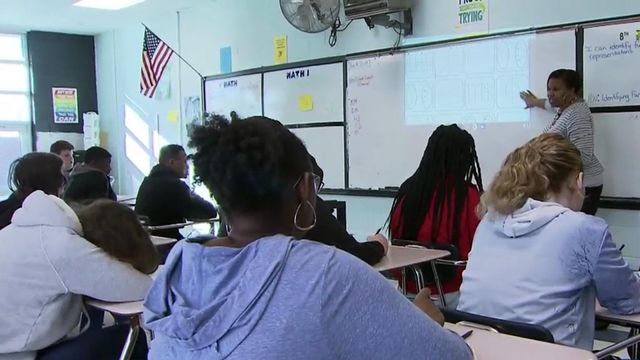State panel starts long process of addressing public school needs in response to court order
Two days after a state judge called for a concrete plan to adequately fund public schools across North Carolina, a panel appointed by Gov. Roy Cooper met in Raleigh to discuss what that plan might look like.
Posted — Updated"Never before in the history of this litigation has the state conceded and accepted responsibility that we’re running an unconstitutional system and have been for multiple decades," said Rick Glazier, executive director of the North Carolina Justice Center and a member of the Governor's Commission on Access to Sound Basic Education.
The commission spent Thursday working on recommendations for Lee to consider. Attorneys in the case are due back in court in 60 days to present plans for short-term changes to implement the court order.
The consent agreement requires sweeping changes throughout the education system, from preschool to college. It requires nearly $8 billion over eight years for better pay and training for teachers and principals and more state support for students who are falling behind and for districts with high poverty. Student performance has to improve, and disparities between districts have to be accounted for.
"We need to make lots of investments in our education system that we haven’t been making for the last eight or nine years," said commission member Helen Ladd, a retired professor at Duke University's Sanford School of Public Policy. "So, we’ve got to catch up to where we were and then move forward."
Some Republican lawmakers are likely to balk at the price tag, but Glazier said all sides will have to cooperate because complying with the order is not optional.
• Credits
Copyright 2024 by Capitol Broadcasting Company. All rights reserved. This material may not be published, broadcast, rewritten or redistributed.






